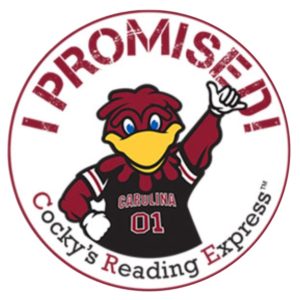[The following is a column I wrote for the College of Information & Communications eNews]
In a recent interview Christiane Amanpour of CNN challenged one of the underlying principles of both journalism and librarianship by calling upon journalists to be “truthful, not neutral.” She talked about how attempting to appear neutral can lead to the creation of false equivalencies, and it is better to be truthful, even if that appears to be taking sides. This idea of intellectual honesty is at the very core of scholarship as well. Scientists seek to apply objective methods in fields they are passionate about. It is not unusual to hear a chemist, a botanist or, indeed, an information scientist recall a story from their childhood that led them to academia and research.
These ideas are very much in the forefront of my thinking upon joining the University of South Carolina. The fact that the university is ranked as a top research institution and noted for community engagement was a major reason I chose to join the faculty. Good scholarship is instrumental in an ongoing effort to improve our communities and society as a whole. When a school, college or, indeed, a university is at its best, it provides an open and diverse platform for exploration. It is a place for undergraduates to learn and question everything. It is a place for professors to explore the reaches of the heavens and the extent of our humanity. It is a place where society can bring its thorniest problems for reflection and examination. A good university, like a good library, is a safe place to explore dangerous ideas.
This is certainly true of the College of Information and Communications. In our labs and classrooms, scholars, practitioners, staff and students all are continually learning to navigate the delicate route between a search for truth and a clarion call for action. A good librarian, a good journalist, a good information scientist are never neutral: they are principled. We prepare ourselves, our students and our communities not into an ideology, but a constant quest to do both well, and good. We prepare people for the job market, but also as citizens in a marketplace of ideas. We arm them not with ideology, but with perspective and healthy skepticism. And it is here that I must ask for your help.
I am convinced that the best learning happens in the richest information environment. Diversity is the key to both validity and social responsibility. As the new director of the School of Library and Information Science I need your help in building a diverse learning space. In the classroom and labs and the halls of Davis College the faculty and I seek to facilitate a rich tapestry of ideas and viewpoints. We need the experiences of alumni and practitioners. The faculty, staff, and students of the school need you to share your passion and your truths. A school, a college, a university, indeed every organization is a conversation. It is a series of voices seeking action and outcome, be it profit, or literacy, or valid study. In the fields of library and information science it is a conversation that started millennia ago with the first libraries in Mesopotamia and that continues today in the work of Google and the Library of Congress alike.
Be a part of that conversation. In the coming months keep an eye on the school website. We will be posting opportunities for speakers and projects. We plan on hosting get-togethers for alumni and partners across the state and the country. But you don’t have to wait to be asked. Find us in Davis College, or on the web, or social media.

